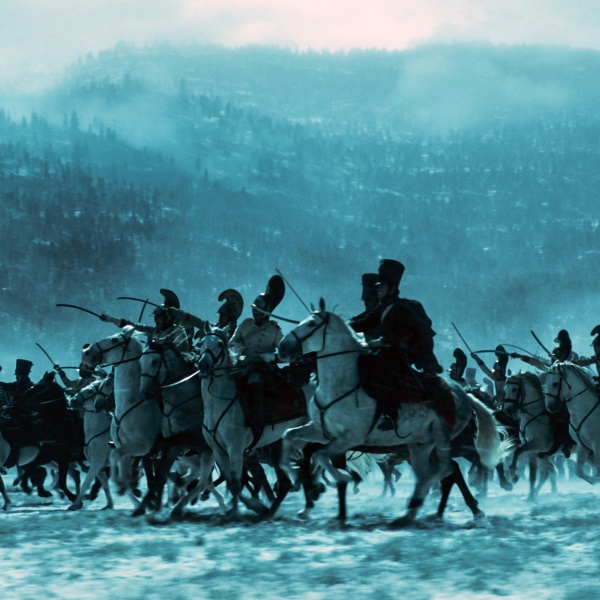
There have been a wealth of medieval swordplay pictures in the last couple of years. Some have adhered to a jumpcut-heavy editing method to allow these pictures a contemporary feel. Others have taken advantage of more liberal times allowing these films the influx of the blood and guts appropriate to the era. But it’s a good bet that none of these efforts from recent years has nearly the same amount of scenery-chewing as “Ironclad.”
Most of said dining is courtesy of Paul Giamatti, the sole male Yankee in the cast. Affixed to a boyish bowl haircut, Giamatti is King John, a ruler so petty and corrupt that it takes the onscreen narration about four minutes to pretty much call him evil personified. It’s the thirteenth century, and King John has committed an oopsie, surrendering to feudal peer pressure in signing the Magna Carta. Realizing how this opens his bowl-cut to further mockery, he’s opted to reclaim his lands and reestablish a tyrannical rule.

There’s a more intellectual, or even respectful way to put this, but it simply must be said — Paul Giamatti is awesome as King John. There’s the sense that the choppy script regarded him as an oppressive baddie of the “kill babies” variety, but Giamatti, who has about forty variations of Shouted Command in his actorly repertoire, manages to add a sense of gravity to this troubled man. Giamatti’s King John is dedicated to his own vanity, though he feels that approach is the best way to preserve the kingdom and his family’s name.
In other words, serving himself is a Divine Right, and Giamatti actually convinces the audience that this philosophy is both necessary and rational. During a break in bloodshed, King John breaks down and tells a story of how his father sought to discipline anyone other than his own son for a minor transgression, punishment that involved a peasant losing a finger. Sitting alone in a shallow moat, on the edge of victory, John recounts this story not as if he is proud of his father, but saddened by the cycle of abuse he feels he must assist in order to maintain the sanctity of the throne.
King John is more of an antagonist, however, so we must spend time with our heroes, of whom must stand their ground in Rochester Castle awaiting the French as King John sends his fury reigning down upon them. This includes a band of rogue Knights Templar led by the surly James Purefoy, solidifying his position as the All-Purpose British (or Scottish, or Irish…) analog for Tom Jane. His crew includes the somehow-perpetually-virile Beckett (Jason Flemyng), the rangy, wild-eyed Marks (Mackenzie Crook), the anachronistically-formidable Lady Isabel (Kate Mara) and the grizzled Albany (Brian Cox), who showcases his bravado with nonstop blue language. Cox has played variations of this character many times, and if you’re not sick of it already, you’re in for a treat. Basically, you should feel as if you’re in for a treat, since all Cox is good Cox.
It’s unfortunate that director Jonathan English (no relation to the British super spy) is less-interested in consistent, thorough characterizations as much as he’s thrilled by faces being torn clean off. Compared to recent efforts in this genre, “Ironclad” is surprisingly gruesome — if last year’s “Centurion” is “Saw,” then “Ironclad,” proportionally, spills the grue much like “Hostel Part II.” But that faux-contemporary storytelling kicks in — English subscribes to the modernity of onscreen chaos and freewheeling disaster, but adheres to the common practice of utilizing slow motion and a traditional orchestral score to trumpet the fact that what we’re watching is supposed to be dramatic. When will filmmakers learn that if they want to make films feel more contemporary that they should use more contemporary storytelling techniques?
With Giamatti’s King John registering so strongly, our heroes would need a similarly-striking presence as far as audience identification. Instead, we’re stuck with Purefoy, all Christopher Lambert scowls and furrowed brows. His generic appeal is so sexless that when he has a brief bedroom exploit with Lady Isabel, their tryst completely falls into the background without further acknowledgement. Like the rest of “Ironclad,” it’s just something that…happened. [C-]




